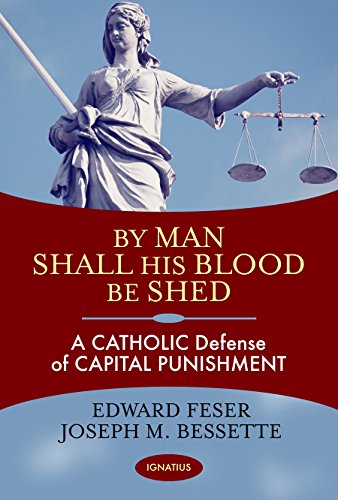

Most ebook files are in PDF format, so you can easily read them using various software such as Foxit Reader or directly on the Google Chrome browser.
Some ebook files are released by publishers in other formats such as .awz, .mobi, .epub, .fb2, etc. You may need to install specific software to read these formats on mobile/PC, such as Calibre.
Please read the tutorial at this link: https://ebookbell.com/faq
We offer FREE conversion to the popular formats you request; however, this may take some time. Therefore, right after payment, please email us, and we will try to provide the service as quickly as possible.
For some exceptional file formats or broken links (if any), please refrain from opening any disputes. Instead, email us first, and we will try to assist within a maximum of 6 hours.
EbookBell Team

4.8
104 reviewsThe Catholic Church has in recent decades been associated with political efforts to eliminate the death penalty. It was not always so. This timely work reviews and explains the Catholic Tradition regarding the death penalty, demonstrating that it is not inherently evil and that it can be reserved as a just form of punishment in certain cases.
Drawing upon a wealth of philosophical, scriptural, theological, and social scientific arguments, the authors explain the perennial teaching of the Church that capital punishment can in principle be legitimate—not only to protect society from immediate physical danger, but also to administer retributive justice and to deter capital crimes. The authors also show how some recent statements of Church leaders in opposition to the death penalty are prudential judgments rather than dogma. They reaffirm that Catholics may, in good conscience, disagree about the application of the death penalty.
Some arguments against the death penalty falsely suggest that there has been a rupture in the Church's traditional teaching and thereby inadvertently cast doubt on the reliability of the Magisterium. Yet, as the authors demonstrate, the Church's traditional teaching is a safeguard to society, because the just use of the death penalty can be used to protect the lives of the innocent, inculcate a horror of murder, and affirm the dignity of human beings as free and rational creatures who must be held responsible for their actions.
By Man Shall His Blood Be Shed challenges contemporary Catholics to engage with Scripture, Tradition, natural law, and the actual social scientific evidence in order to undertake a thoughtful analysis of the current debate about the death penalty.